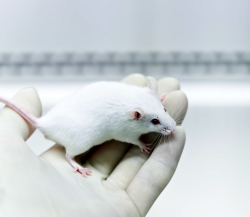Impact of new legislation for animal protection in research
Scientific progress and concern for animals can potentially come into conflict. The EU has striven to balance the needs of medical and scientific advancement with ethical concerns for animal use in research. This is being achieved through Directive 2010/63/EU, adopted in 2010 and based on the principle of the Three Rs: replace, reduce and refine the use of animals in scientific research. Currently, the Directive is close to being fully implemented in the Member States, which gives rise to a development that is slowly but surely upping the ante in the quest to strengthen animal ethics without compromising research and innovation. Against this backdrop, the EU-funded ANIMPACT (An ethical, legal and practical perspective on the impact of a new regulatory framework for the scientific use of animals on research and innovation) project investigated how Directive 2010/63/EU affects the way in which animal-based research is being conducted. It looked at both internal and external decision-making mechanisms, norms and rules in order to understand the Directive's impact. 'Research is regulated not only from "the outside" by legislation, but also from "the inside" such as through peer review and through researchers' own motivation,' says Anna Olsson, the project coordinator from the Institute for Molecular and Cell Biology in Porto, Portugal. A closer look at external regulation, which focuses on project review and authorisation, revealed important differences in the composition and organisation of the entities across Europe that authorise animal experiments. 'Considering the effect of committees on authorising research, possible variations in evaluation will be an important issue to address in the future,' commented Olsson. The team went a step further by delving into the internal regulatory framework, particularly researching journal practices and the influence of discipline-specific guidelines for animal-based research. Interestingly, in a case study, ANIMPACT found that guidelines reflect existing standards within a field but did not find evidence that the introduction of guidelines had changed standards. 'There was no obvious difference between research emerging before or after the publication of the guidelines,' says Olsson. She did however note that the severity levels tolerated in research based on guidelines were clearly less than in a comparable discipline without such guidelines. It was a pleasant surprise for the project team to find that bench researchers agreed with the need for regulation of animal research and with the intentions of the Directive. On the other hand, researchers were concerned about the related paperwork, bureaucracy and possible delays in project authorisation that the new legislation may bring. Nonetheless, the acceptance and engagement bodes well for a regulatory framework widely supported by those it regulates – i.e. the researchers. 'To ensure that this support is maintained, the system must be designed to function well in practice without unnecessary bureaucracy', advises Olsson. 'Self-regulation plays an important role in advancing animal ethics, but its implementation varies. Wider discussion among stakeholders of where responsibility lies could improve this.'" While the Member States have already transposed Directive 2010/63/EU into national legislation, in many places some key instruments downstream of legislation have to be built from scratch and will require a few more years for completion. This is especially the case in European nations that had not already established a national committee for the protection of animals used for scientific purposes. 'Implementation is still an ongoing process, but it is already very clear that there is an EU-wide engagement with this legislation and a clear sense of sharing a legislative framework,' comments Olsson. The EU Directive is considered the most advanced legislation worldwide on animal experimentation. It was developed to set a uniform standard across the EU without lowering the standard in any single Member State. Webinars and dissemination of information material on the project website will enable sustained communication between stakeholders beyond the duration of ANIMPACT.
Keywords
Animal ethics, scientific research, Directive 2010/63/EU, ANIMPACT, animal-based research



